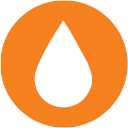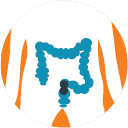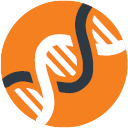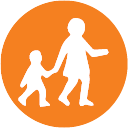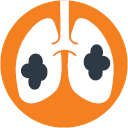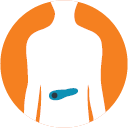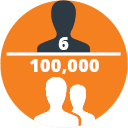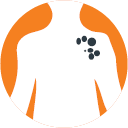In 2022 we invested in 9 of the brightest and best cancer researchers from across Australia.
Please see the list of all early career cancer researchers that are currently funded by the CanToo Foundation here.

Dr Belamy Cheung
Children's Cancer Institute
Investigating Ways to Prevent Aggressive Childhood Cancers
Dr Cheung’s project will be the first to identify and investigate the risk factors for the development of embryonal cancers. The team will study how a high fat diet, maternal obesity and high birth weight contribute to the development of high-risk neuroblastoma. In lab testing, the team will determine if drugs that target the metabolism, fatty acids and cholesterol could be used to treat, and potentially prevent, neuroblastoma development.

Dr Arutha Kulasinghe
The University of Queensland Diamantina Institute
Immunotherapies in Lung Cancer
With the emerging success of immunotherapies in lung cancer patients, leading to durable and prolonged survival, there is now a need for predictive biomarkers to guide patient selection. This project aims to use cutting-edge spatial genomics and advanced imaging approaches to characterise the tumour microenvironment of non-small cell lung cancer. This will ensure that those likely to benefit from immunotherapy receive optimal care, and prevent exposure of toxic agents to those unlikely to respond.

Associate Professor David Ziegler
Children's Cancer Institute
Testing a New Dual Treatment for Aggressive Childhood Brain Cancer
A/Professor Ziegler and his team recently discovered that a specific molecular pathway is overactive in aggressive childhood brain cancer. Further lab testing by the team has shown this molecular pathway is a promising treatment target.
In this project, A/Professor Ziegler will use samples from the most aggressive childhood brain tumours to test if a new drug combination can switch off the overactive molecular pathway and halt cancer progression. They will also test the effectiveness of this drug combination alongside chemotherapy and other current treatments to see if their effectiveness is enhanced.

Dr Zayed Nassar
The University of Adelaide
Prostate Cancer Research
Cancer cells are characterised by uncontrolled cell proliferation, the ability to migrate and invade into other tissue, and resistance to treatment. These cellular capabilities require the production of additional energy by the cell. Prostate cancer cells rely mainly on lipids as fuel to supply the increasing demands on energy. Targeting the machineries (enzymes) that the cells use to break down lipids into energy may be a new way to slow tumour growth and metastasis.

Dr Yolanda Colino-Sanguino
Children's Cancer Institute
Cancer Metastasis
Cancer metastasis is the main cause of cancer-associated deaths; thus, there is an urgent need to identify new therapeutic targets to stop the spread of cancer. In this proposal, the investigator will integrate different datasets derived from individual cells to characterize a rare population of immune cells that are responsible for preparing the host organ for colonisation by metastatic cells. This proposal will lay the groundwork for the development of new immunotherapeutic strategies for aggressive cancers.
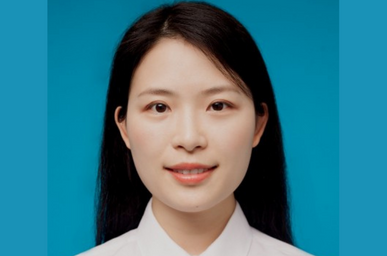
Dr Dongmei Tong
Hudson Institute of Medical Research
Supported by The Mike and Joan Tallis Endowment
Lymphoma Project
There is an important medical need to better understand why only some H. pylori-infected individuals will develop stomach MALT lymphoma and, moreover, identify those individuals who are likely to develop aggressive disease.
To identify biomarkers for stomach lymphoma, Dr Tong proposes to apply a state-of-the-art genetic technique known broadly as “spatial transcriptomics” to the mouse model of the disease.
The use of this technology would represent a huge leap in the field as it would allow, for the first time, to characterise at the molecular level individual cells within stomach lymphoma tumours.

Dr James Wilmott
University of Sydney, Melanoma Institute
Developing a simple test to ensure advanced melanoma patients get the right drug for their disease
Personalised Immunotherapies: Clinical implementation of genomic and transcriptomic biomarkers of response to stratify cancer patients for precision medicine.
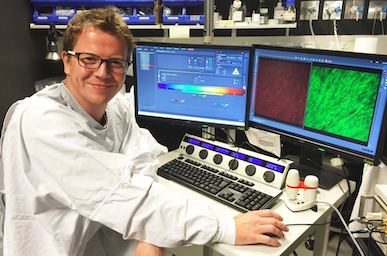
Dr Paul Timpson
Garvan Institute of Medical Research
Targeting pancreatic cancer vulnerabilities
In this project, Professor Timpson and his team will use cutting-edge imaging technology and lab models that mimic pancreatic cancer to enable them to watch tumour response to treatment in real-time and to map the areas of the tumour where treatment has little of no effect. By observing live pancreatic cancer in this way, the team hope to identify the factors that limit treatment effectiveness, how best to target tumour vulnerability, and when to attack these vulnerabilities for maximum effect.
Prof Timpson and his team hope their findings will lead to much needed new treatment approaches for pancreatic cancer.
We Invest In Fighting All Cancers
Can Too Foundation believes in funding research across all cancer types, including rare cancers. We support early-career cancer research grants and major cancer research projects for one year at a time, with a commitment to continue providing support in future years for multi-year grants and projects.
Blood Cancers
Bowel Cancer
Brain Cancer
Breast Cancer
Cancer Genetics & Biology
Cancer Prevention
Cancer Treatment
Children's Cancers
Gynaecological Cancers
Lung Cancer
Pancreatic Cancer
Prostate Cancer
Rare Cancers
Skin Cancers
Current Beneficiary Partners

Children's Cancer Institute's vision is to save the lives of all children with cancer and improve their long-term health, through research. In 2021 Can Too is funding Children's Cancer Institute researcher – Dr Emmy Fleuren who was also a participant and ambassador for Can Too’s Autumn Swim program. She is dedicated to improving the cure rates for children with sarcoma using therapies that specifically target the tumour cells that are more effective and less likely to cause damaging side effects.
Can Too Foundation has also partnered with the Children's Cancer Institute, by training open water swimmers to take on the Balmoral Swim for Cancer since 2018. By training swimmers for these events Can Too has raised over $309,220 for cancer research and prevention.

Cancer Australia was established by the Australian Government in 2006 to benefit all Australians affected by cancer, and their families and carers. Cancer Australia aims to reduce the impact of cancer, address disparities and improve outcomes for people affected by cancer by leading and coordinating national, evidence-based interventions across the continuum of care.

Cancer Council NSW has collaborated with the Can Too Foundation since February 2014, with four rounds of one-year funding support for major cancer research projects including A/Prof Phoebe Phillips team leading a breathkthrough in pancreatic cancer. Together we are developing and delivering new fundraising programs in the health and fitness space that engage members of the community to take part in fitness events to encourage a healthy lifestyle while raising funds for cancer research. Our programs aim at encouraging people to take up or maintain exercise as part of a healthy lifestyle to reduce their chances of being diagnosed with cancer.

Can Too Foundation has partnered with Hudson Institute of Medical Research. Hudson Institute of Medical Research share Can Too's commitment to funding research for ALL cancer types and ALL areas of cancer research. Hudson Institute scientists are investigating how cancer develops, exploring ways to better diagnose, detect and treat life-threatening cases – and improve a patient’s quality of life.

